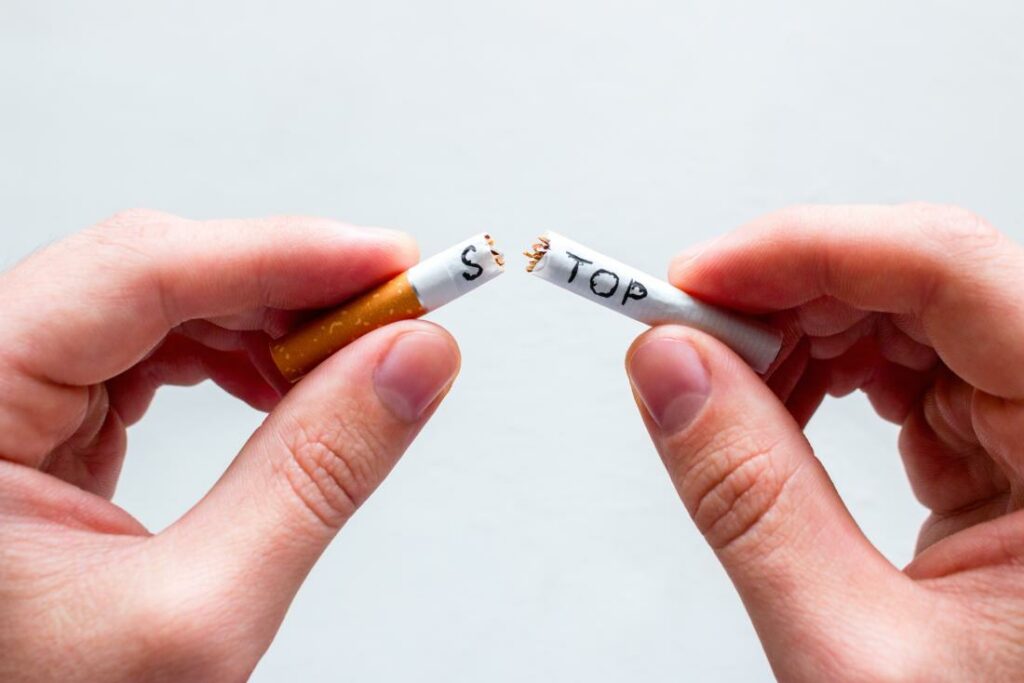If you’re struggling with addiction, you’re not alone. Addiction is a widespread problem that affects millions of people each year. Fortunately, there is help available. Deaddiction therapy can be an effective way to overcome addiction and start living a healthier life. In this blog post, we will discuss what deaddiction therapy is and how you can find this therapy near you to get your life back on track.
Contents
What Do You Mean By Deaddiction?
 Deaddiction is a term used to describe the process of recovery from addiction. It is the process of overcoming physical and psychological dependence on any substance or activity that has become compulsive or uncontrollable. Such as drugs, alcohol, gambling, shopping, sex, or even video games.
Deaddiction is a term used to describe the process of recovery from addiction. It is the process of overcoming physical and psychological dependence on any substance or activity that has become compulsive or uncontrollable. Such as drugs, alcohol, gambling, shopping, sex, or even video games.
It is believed that addiction is a disease and can be treated with appropriate help. The recovery process involves recognizing the problem and making behavior changes to break away from addiction. Do not take lightly the harmful effects of addiction on an individual’s life and those around them.
Deaddiction therapy is widely advised to reduce the effects of addiction by clinicians. It is important for an addict to seek help. As it helps in identifying the underlying cause of addiction and its consequences.
What Does Deaddiction Therapy Do?
If you or a loved one have an addiction, deaddiction therapy can help. Deaddiction therapy is designed to address the physical and psychological aspects of substance abuse. So that individuals can achieve long-term sobriety. It begins with an assessment to determine the severity of the addiction and areas where the individual needs support.
This assessment helps create a customized treatment plan that will address the individual’s physical and mental needs. After this assessment, treatment may include one-on-one therapy, group counseling, peer support groups, educational classes, lifestyle changes, and more.
The goal of deaddiction therapy is to help people identify triggers for their addiction and manage them in a healthy way. This includes learning how to cope with difficult emotions and stress. It also includes teaching the individual how to live a healthier lifestyle—one that does not include substance abuse.
What Are The Different Deaddiction Therapy Options?
 There are a variety of different therapies available for individuals seeking to overcome addiction. Here are the top 5 deaddiction therapy that you should consider:
There are a variety of different therapies available for individuals seeking to overcome addiction. Here are the top 5 deaddiction therapy that you should consider:
Cognitive Behavioral Therapy (CBT)
CBT is a form of psychological therapy that helps people to identify, understand, and change the thoughts and behaviors that lead to addiction. This type of therapy aims to help people learn how to modify their patterns of thinking and behavior. So they can reduce their reliance on drugs or alcohol. It can be used in combination with other treatments and therapies.
Motivational Interviewing (MI)
MI is a type of therapy that helps individuals to explore the reasons why they use drugs or alcohol, and uncover their motivation to change. The goal is to help them develop insight into their behaviors and create strategies for overcoming addiction. It focuses on helping people to develop a sense of personal responsibility for their recovery.
Dialectical Behavior Therapy (DBT)
In some cases, DBT is proven to be more effective than traditional therapies for addiction. This type of therapy combines CBT and mindfulness-based techniques to help people identify their triggers. And manage overwhelming emotions. It also encourages them to develop healthier coping skills. The aim is to help them switch from destructive behaviors to constructive and healthier behavior.
Mindfulness-Based Stress Reduction (MBSR)
MBSR is a type of therapy that teaches people how to be mindful and aware of their thoughts, feelings, and behaviors. It helps individuals become more aware of the triggers for their addiction, so they can make better choices for themselves. For example, it can help them to recognize the urge to use drugs or alcohol and then find ways to resist that urge.
Group Therapy
Finally, deaddiction therapy can involve group therapy. This type of therapy brings together individuals who are experiencing similar challenges and supports them in overcoming addiction. In a group setting, members are able to share their experiences, learn from each other, and get validation and support. The goal is to help them develop a sense of community and accountability. This can be an invaluable tool in the journey toward recovery.
Ultimately, it’s important to work with an experienced therapist or addiction specialist to find the treatment that’s right for you. Different therapies may be more effective for different individuals. And it’s important to find the one that works best for your unique needs.
How Do I Find The Right Deaddiction Therapy Near Me?
 Many people around the world suffer from addiction, and seeking the right treatment can be a difficult process. Thankfully, there are many resources available to help you find the right therapy near you. Here are some of them:
Many people around the world suffer from addiction, and seeking the right treatment can be a difficult process. Thankfully, there are many resources available to help you find the right therapy near you. Here are some of them:
MantraCare
One of the most popular sites for finding addiction therapy is MantraCare. Here, you can search for local treatment centers by entering your zip code or city and find reviews from other people who have used their services. You can also get information about the type of therapies offered, such as cognitive behavioral therapy, Dialectical Behavioral Therapy (DBT), and more.
Rehabs. in
Rehabs. in is another great resource for finding addiction therapists across the country. They have a comprehensive directory of facilities. And each listing includes information about the types of treatments they provide, what kind of insurance they accept, and more. They also offer an online assessment tool to help you determine which type of treatment would be the best fit for you.
Substance Abuse and Mental Health Services Administration (SAMHSA)
The SAMHSA is a federal agency dedicated to helping people who are suffering from addiction. They maintain an online directory of certified facilities across the United States, providing information on the types of services offered, costs, and more. You can also find information about support groups and community resources that can help you in your recovery.
Primary care provider
Your primary care provider is a great resource for finding addiction treatment centers near you. They can provide referrals to local facilities and suggest other options based on your individual needs and preferences. Because they are already familiar with your medical history, they can also provide advice on the most appropriate treatment plan for you.
No matter which resource you use to find addiction therapy, it’s important to take the time to research and make sure that you are choosing a facility and therapist who are a good fit for you. Doing so will ensure that you get the best care possible and have the highest chance of successful recovery.
How Do I Stop Being An Addict?
 Though addiction can be incredibly difficult to overcome, there are a few steps you can take if you want to put an end to your addiction.
Though addiction can be incredibly difficult to overcome, there are a few steps you can take if you want to put an end to your addiction.
- Firstly, it’s important that you own up to the fact that you have an addiction and make a commitment to yourself to take action. Acknowledge that your life has been negatively impacted by your addiction, and focus on the positives that will come from trying to quit.
- Once you’ve made a plan to take action, it’s important to get support from family, friends, and professionals who can help keep you accountable. Consider joining a support group or attending therapy sessions – having professional guidance can be incredibly beneficial in stopping addictive behaviors.
- There are also a variety of lifestyle changes that you can make to help prevent the urge to relapse. Exercise regularly, keep busy with activities and hobbies, get plenty of sleep, and focus on eating healthy foods. These small steps can have a big impact on your mental and physical health.
- Finally, it’s important to have a plan in place in case you do experience cravings or urges. Have a list of activities that can help distract you, such as reading, talking with friends, going for a walk, or playing an instrument.
It’s also important to remember that addiction is a disease and it won’t go away overnight. It takes time, effort, and dedication to break the cycle of addiction. If you stay focused and motivated, recovery is possible. With the right help and support, you can kick your addiction for good.
Conclusion
To conclude, deaddiction therapy is probably the most effective way to overcome addiction. Those seeking help should consider the various types of therapies available. And choose the one that best suits their needs and lifestyle. As with any form of therapy, it is important to remember that success depends on commitment and determination.
In addition, having a strong support system in place can make a big difference in the journey to recovery. Family, friends, and professionals can help provide encouragement and accountability for those who are struggling with addiction.
For more information, please contact MantraCare. Addiction is a chronic and often relapsing disorder characterized by compulsive drug-seeking and use despite harmful consequences. For any queries regarding Online Addiction Counseling seek help from experienced therapists at MantraCare: Book a trial Online therapy session


